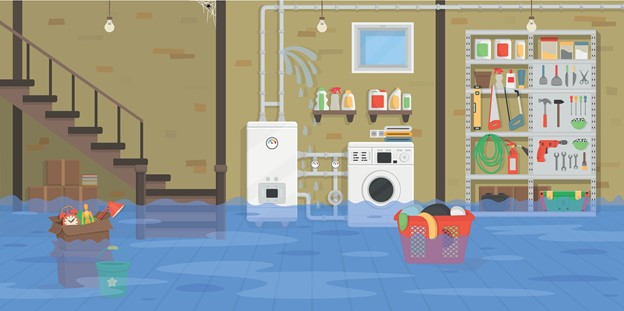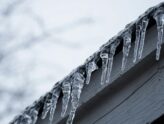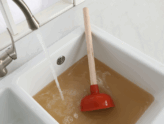Plumbing Emergency? Here’s What You Need to Do
Unfortunately, plumbing emergencies do happen from time to time, especially if one of your appliances is faulty, there is a blockage, or there is an extreme weather event.
In the event of a plumbing emergency, you should follow our recommended tips below. While the situation may seem stressful, the most important thing to do is remain calm and ensure you and your family members are safe while you wait for an emergency plumber.
1. Assess the Emergency
The very first step to handling a plumbing emergency is to assess what is happening to your home. Remain calm and inspect the source area or malfunctioning plumbing equipment. If you’re experiencing a flood or finding an appliance that won’t stop running water, do not panic. You can take measures to prevent it from worsening. As ever, ensure your family members or any pets are safe and remove them from the property if possible.
If you are concerned about floods on your property, call your local emergency plumber as soon as possible.
On the other hand, if you’re experiencing no water on your property, you should check appliances across your home. This can indicate if the appliance is faulty or the entire system is not working. Do check with neighbours or visit your local government’s website for water outages. If there is no warning and your neighbour’s water supply is working fine, you should contact a plumber to investigate.
2. Switch off the Water Supply
Your home likely has a stop valve that allows you to switch off the water supply. This is especially useful to help prevent flooding from worsening. This valve is likely to be found where the majority of your plumbing is, such as the basement, kitchen or water closet. Give it a firm turn and you should notice a quick stop in your home’s plumbing.
For future reference, do show babysitters, guests or housesitters where the stop valve is so that they can act quickly in a plumbing emergency if you are ever away from home.
3. Remove any Electrical or Hazardous Items
Floodwater can easily damage electrical items. If you see water levels rising in your basement or on the ground floor, take action immediately by removing dry, unaffected electrical items and switching off the power supply. Any chemical or potentially hazardous items in your home should be taken out of the property too.
If you suspect the water has already broken one of your electrical appliances, do not try to retrieve it. Water is an easy conductor of electricity and can cause an electrical shock if handled incorrectly while the power is still on. Tell your emergency plumber about this hazard when they arrive.
4. Allow Water to Drain or Seal the Area
If you have lower windows or doors in your basement, consider opening them so that flood water can drain out if it is rising fast. This will buy you additional time and protection while you wait for assistance.
To prevent the water from rising or spreading across your home, place sandbags or highly absorbent towels in the gaps or cracks of interior doors to slow the water down.
Contact a 24/7 Emergency Plumber in Durham Region
Facing a plumbing emergency can be an anxious and stressful experience. However, the most important thing you can do is stay calm and seek professional assistance from an emergency plumber. They will be able to assist you and help put the plumbing emergency right.
If you are located in Durham Region and are in need of an emergency plumber, contact Caldwell Plumbing. Our team of skilled plumbers can quickly come to your aid and fix plumbing emergencies 24/7.
















